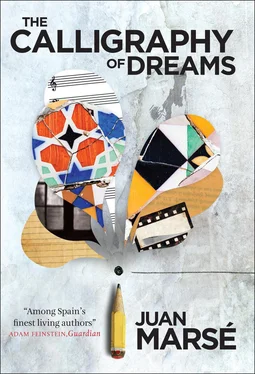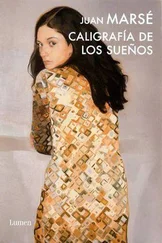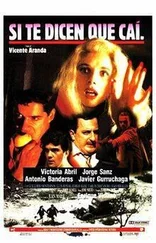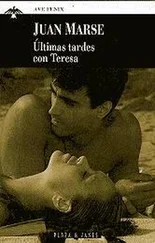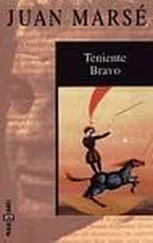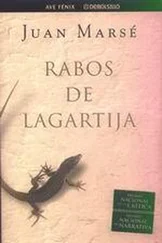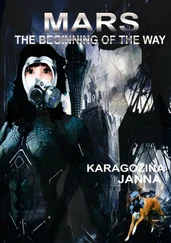Later on they go by the Selecto, and his father remembers that until a short time earlier it was a pigsty.
“You could pick up lice and scabies and I don’t know what else in the artistes’ dressing rooms. But by the time we left, you could eat your dinner off any seat.”
“You did a good job, Father.”
“But this one is no good. It’s not for minors.”
“I know.”
“On we go then.”
He’s stopped to look at the case of photos. “The Four Feathers”. He likes June Duprez a lot. On the board announcing the variety shows, Chen-Li Puss in Boots has vanished, and now another pair of glittering legs and another name is engraved on his mind: the Supervedette Lina Lamarr, a comic dancer.
“Do you think there are any blue rats left in there, Father?”
“Who knows? Keep going.”
“With all the blue rats that are around, I’ve still not seen even one.”
“I wouldn’t say that.”
“Do you think that before your brigade finishes them all off I’ll be able to see some?”
“You’ve come across them lots of times.”
“No I haven’t, I haven’t seen a single one …”
“What are you standing there for? Come on, let’s go.” He examines his fingernails, rubs them on his lapel. “If they gave you five pesetas for every one you’ve seen, you’d be a millionaire.”
“But I haven’t, Father.”
“And I say you have.” Avoiding the boy’s inquisitive gaze, he feels with his hand for his shoulder once more. “The thing is, sometimes those rats lose their colour in the rain. It’s normal, if you think about it. Brown rats though, who have a very soft skin …”
“Hey, you’re making fun of me!”
“Don’t stop, keep going.”
He’ll have to show me a blue rat, he thinks, or I’ll never believe him.
“Didn’t you hear me? Keep walking,” his father insists. “And don’t imagine that it’s only rats that can infect you. Not long ago in some cinemas if you took a piss in the toilets you could catch the clap.” He points to an ancient-looking balcony on the far side of the street, next to Fontana metro station. “Look — when you were five we used to live behind that balcony, on the first floor. Your mother’s younger brother Francisco died there. He was only seventeen. He was called up at sixteen. He was brought back from the Battle of the Ebro with typhus, covered in lice. He hadn’t fired a shot. You won’t remember, you were too young, but from that balcony one January day seven years ago now, you and I watched the Nationalist troops march into Barcelona … Well, anyway, as I was saying. Do you know what gonorrhea is, Son? Or the clap?”
“It’s a venerable disease.”
“Venereal.”
“That’s it.”
“But do you know how you catch it?” They cross the road opposite Cuesta’s jewellery shop and walk on down the left-hand pavement. “Or syphilis? You’re growing up, and it’s time you knew these things, isn’t it?”
“But I already know all that, Father.”
“I bet you do! Look, this is the Smart cinema.”
“It’s not called the Smart anymore, it’s the Proyecciones now.”
“It’s an infectious disease of the cock that you get if you go whoring in the Barrio Chino.” They have halted in front of the cinema, and the boy is staring at the posters. “Whores. Do you know what they are? Of course there are whores everywhere, not just in the Chino … Besides,” he says, a melancholy note in his voice, “today that district isn’t what it used to be, or anything like it. You should have seen it fifteen years ago, when we used to go to La Criolla on Calle Cid … Well, I only went once. Dreadful little alleyways lined with bars and prostitutes and queers and the worst sort kind of pimp you can imagine … But anyway, there’s nowhere like it to go whoring. But it’s not to be recommended, do you hear me? And it’s as well you know that. I suppose it hasn’t yet crossed your mind to go down there for a look with your little friends on a Saturday night, has it?”
“Not me.”
“Do you know what whoring means, Son?”
“Of course.”
“It’s the kind of thing you should know by now. Wrap up well in your scarf. Your mother wants you and me to talk about it, so we have to.”
“Alright.”
“There’s no choice. You need to know certain things.”
“Uhuh.”
“Better today than tomorrow, your mother says. And she may be right. What do you think?”
“Well, I’m not sure …”
He remembers seeing his father standing on the rusty balcony they have now left behind. He can see him there in a thick overcoat with the collar up, weeping silently, an unlit cigar between his lips, as he watches the soldiers marching down from Plaza Lesseps, exhausted under their heavy capes and rolled-up blankets, rifles slung over their shoulders, boots resounding on the cobblestones. Ringo is crouching between two pots of geraniums, his face thrust between the bars of the balcony. Recalling that day, his father always said that the boy, seeing him crying and chewing the cigar, suddenly burst into tears himself. Not because he felt impotent and furious at seeing the Nationalists march past, obviously not, he was too small to understand that a war and untold hopes had been lost, but possibly because he empathetically felt the same sorrow, because this was the first time he had ever seen his father cry. But what he remembers most are the troops marching down the street: that strange, wriggling caterpillar of backs bristling with rifle bayonets, equipment belts and canteens, and above all in the last rank, three dead little birds swinging from a wire stuck in a backpack.
“Let’s go on,” his father says, nudging him with his elbow. “We’ve never worked in this cinema, so they don’t know me.… Careful, here comes a vulture in a cassock.” A young, alert-looking priest was coming up the same pavement, the skirts of his cassock billowing out as he strode along carrying a bulging briefcase. After he had passed by them, the Rat-catcher turns to look at him. “He’s a poof! You only need look at the way he walks.”
“Ha,” Ringo agrees, lowering his head.
At that moment he would give anything to be with his friends back in the village in the country, swimming in a green pond among the leaping frogs. He tries to summon up this image at times like these, because this is what he most loves to do, apart from reading books or musical scores: to swim, dive, fill his ears with water and music and nothing else.
“So, tell me something,” insists the Rat-catcher. “What’s the first thing you look at when you see a girl?”
“Me?”
“Yes, you.”
Err … I dunno. The eyes.”
“The eyes. Very thoughtful of you.” He pauses for a few seconds, then adds: “The eyes. That’s a very clever answer. Now tell me: what’s the first thing you look at when you see a girl?”
“What …?”
“I mean one of those beauties, a stunner as they call them these days. I know it’s a silly question. But you must notice what it is you like, I don’t know, the arse for example … there’s nothing bad about that, it’s normal. Yes, don’t look at me like that, everybody thinks it’s normal.”
“Yes, but the fact is …”
“Girls’ arses, dammit! Do you like girls or not? I don’t know why you think it’s so odd! It’s a simple enough question!”
It takes him an age to reply, and when he does so he hides his mouth, nose, and almost his eyes, in the top of his scarf.
“The thing is, I don’t really look.”
“Come off it! How can you not, a normal boy like you! Remember, it’s your mother who’s insisting we have this little talk. I reckon it’s something we ought to do when you’re fifteen or sixteen, but your mother’s been going on and on about it … Look, here on the right is the Mundial cinema. Let’s go in and say hello to Señora Anita in the box office. She’s a good woman. She’ll let you in for free, and you can bring a friend as well, if you like. Or if you want to bring a girlfriend, eh?” He laughs and slaps him so hard on the back he almost doubles up. “Great, isn’t it?”
Читать дальше
